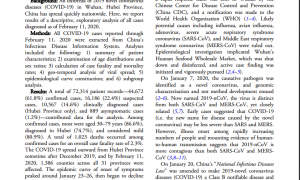sit/seat
sit-sat-sat (vi.) 坐
seat-seated-seated (vt.) 使坐下
两者都含有「坐」意思的动词,sit 是主动的坐下,而 seat 则是「使 (某人) 就座、坐下」,来看看下面这两句的比较:
I sit right next to Harry.
我坐在Harry旁边。
He is seated beside the fire place.
他坐在火炉旁。
这两句要表达的意思是一样的,但是动词的型态却是不同的,或许有人觉得奇怪,为什么要「使」自己坐下?其实这种被动的用法是较文雅的表达,因此以后要表达「坐下」时,你可以用这三种表达方式:
Sit down. = Be seated.
fall/fell/feel
fall-fell-fallen (vi.) 落下 / 跌倒
fell-felled-felled (vt.) 砍伐 (树木)
feel-felt-felt (vt.) 觉得 / 感觉;(vi.) 有感觉

差一个字母,意思就不一样了!较容易混淆的是,fall 的过去式是 fell,因此在判断意思之前,要先搞懂正确的时态才不会误判喔!以下是为这些动词常常出现的片语:
fall behind 落后
feel like 感觉;想要
If you feel like you’re falling behind others in your team, you should catch up before things get worse.
如果你发现自己跟不上团队里的其他人,你要赶紧跟上以免情况更加严重。
fall asleep 睡着
feel sleepy 想睡觉
This lesson was so boring that almost every student felt sleepy, and some of them even fell asleep.
这堂课很无聊,几乎所有学生都想睡觉,有些人甚至直接睡着了。
find/found
find-found-found (vt.) 找到 / 发现
found-founded-founded (vt.) 创立 / 创设
虽然 find 的过去式就是 found,但是 found 当现在式的时候也有不同的意思,所以别把它误认成「找到」了~
I can’t find my purse. I think I left it in the restaurant.
我找不到我的钱包,我好像把它丢在餐厅了。
I found a missing child on the street.
我在街上发现一个走失的小孩。
The charity founded a children’s hospital.
那个慈善机构创立一家儿童医院。
VoiceTube was founded in 2013.
VoiceTube 创立于2013年。
lose/loss/loose
lose-lost-lost (vt.) 输 / 失去 / 迷路
loss (n.) 损失
loose-loosed-loosed (vt.) 松开 / 放开;(adj.) 松的
同样是多一个字母意思就不一样的这组字,千万别搞混啦! lose 除了原型动词外,过去分词 lost 也常拿来当作形容「迷路的、失去的」的意思:
Nobody likes to lose a game, but it is a part of life.
没有人喜欢输,但那是人生必经之路。
We were lost for two hours until we finally find the right track!
在迷路两小时后,我们终于找到了原本的小径!
Ever since I went on a diet, all my clothes feel loose.
自从我开始节食后,我的所有衣服都变宽松了。
The global financial crisis caused some major loss to many people.
全球金融海啸对许多人说是一个巨大的损失。
「减肥」的英文是 lose/loss/loose weight?
lie/lay
lie
lie-lay-lain (vi.) 躺 / 位于
lie-lied-lied (vi.) 说谎
“lie” 有两种中文意思,两者都是「不及物动词」,因此后面不能加上受词,常常接「介系词」;最容易混淆的地方是,意思不同时,动词三态变化也会不同,要小心不要搞错了:
The house lies in a little valley behind the forest.
那栋房子位于森林后面的小山谷中。
She lay down for a rest after walking all day.
一整天走路的行程后,她躺下来休息一会儿
He has lain in bed for two weeks after the accident.
车祸过后,他已经在床上躺了两个星期了。
I would never lie to you.
我永远都不会对你说谎。
She lied about her age to get the job.
她为了得到那份工作谎报年龄。
lay
lay-laid-laid (vt.) 放置 / 铺设 / 产(卵)
lay 是及物动词,后面一定要紧跟着一个受词,常常和 lie 的过去式 lay 混淆,不过分辨 lay 和 lie 的方式其实很简单,只要切记:lie 后面不加受词,lay 后面直接接名词。
He laid his hand on my shoulder.
他把手放在我的肩上。
These hens lay eggs every day.
这些母鸡每天下蛋。







